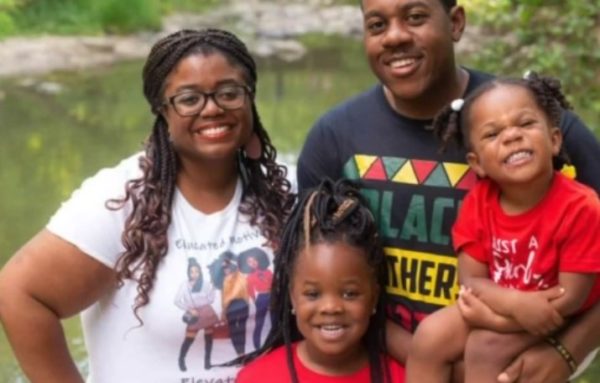A Black Ohio family said their home value increased by $92,000 after they removed all signs that they were Black before a second appraisal was conducted.
Erica and Aaron Parker knew something was wrong when an initial appraiser valued their Loveland home at more than $42,000 less than the sales price for which they’d agreed to sell it.

But after the family removed all signs that they were Black from the home before a second appraisal and the valuation was subsequently increased, emotions swirled.
“I went from like crying to angry to crying. I went back and forth,” Erica Parker told WCPO “I didn’t really stay in one emotion too long. My husband was focused, because he’s like, ‘I knew it. I knew it was wrong.’ ”
The Parkers, parents to two young children, planned to list their Greater Cincinnati home for $525,000, but were happy to promptly receive an offer in the low $500,000s before the home was officially placed on the market.
But when an appraiser valued the home at $42,500 lower than the agreed-upon price, the prospective buyers’ realtor began asking if the Parkers would lower the price.
When the Parkers looked at the appraisal, they noticed several errors. For example, the file listed the home as being 15 years old, although it was built in 2014. In addition, updates made to the property had been left out.
Amy Goodman, the Parkers’ realtor, said the price wouldn’t be lowered and that the appraisal was wrong. But the appraiser refused to correct errors in the report and defended the analysis.
The Parkers hired a second appraiser for another valuation. However, this time they removed all signs of their race. During the first appraisal, Erica Parker had been working from home, and family photos as well as brown-skinned superheroes drawn by the couple’s daughters were displayed about the house.
Every sign that the homeowners were Black was removed and family photos borrowed from white neighbors were instead displayed in the house. During the process, Parker’s six-year-old daughter questioned why the pictures were being taken down, and she was forced to explain that sometimes people are treated different based on the color of their skin.
Parker filmed a video documenting the removal of the objects from the home.
“How am I washing my house in whiteness?” she said in the video. “I’m taking pictures down. And turning them around. And I’m going to replace them with my neighbors.”
Goodman was present for the second evaluation. This time, the value of the home was set at $557,000, or about $92,000 higher than the original appraisal and $50,000 higher than the agreed-upon sales price.
The couple has not released the names of the appraisal companies and is in contact with a lawyer about potential next steps.
This is not the first time a Black family has landed a higher home valuation after concealing their race. A California couple saw their home value increase by $500,000 early this year after a white woman stood in for them.
Homeowner Paul Austin called what happened a “slap in the face.”
In another example, this spring, Carlette Duffy, a Black Indianapolis woman, filed a complaint in conjunction with the Fair Housing Center of Central Indiana after her home valuation jumped by $100,000 when she removed Black identifiers from her home and had a white friend sit in for her during the appraisal.
“Only when I removed myself did I increase the value,” Duffy said. “So I’m being seen as the object of devaluation in my home, and that part hurts. That’s the part that’s hard to get over.”
The issue of discrimination in home appraisals is widespread. The U.S. Department of Housing and Urban Development announced earlier this summer that it would be investigating bias in appraisals. The Property Appraisal Valuation Equity task force is intended to fight appraisal discrimination and is expected to make recommendations in 2022.


